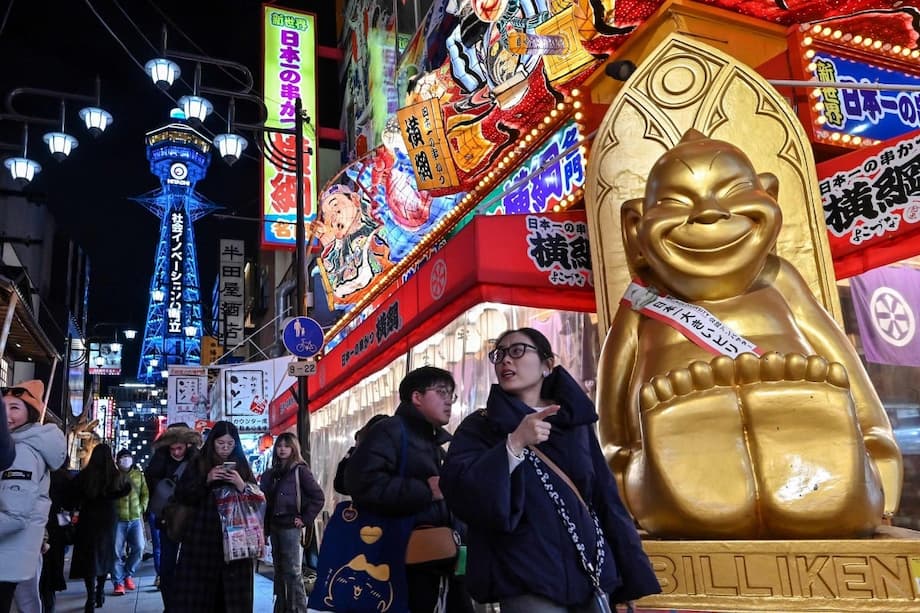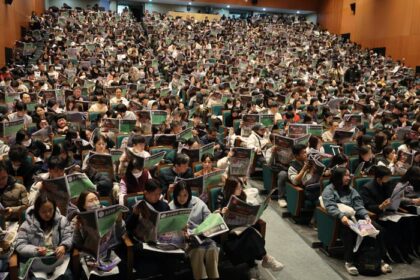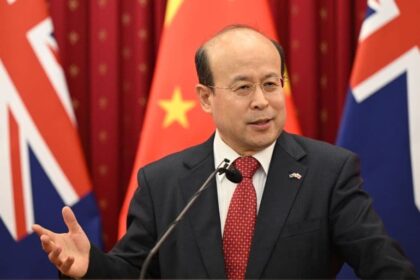Osaka Scraps Special Tourist Tax Proposal: What Happened and Why It Matters
Osaka, one of Japan’s most popular destinations for international travelers, has officially abandoned its plan to introduce a special tax targeting foreign tourists. The decision, announced by prefectural officials after months of heated debate, comes as Japan as a whole grapples with the challenges and opportunities presented by record-breaking tourism numbers. The move not only highlights the complexities of taxing visitors in a globalized world but also reflects a broader national conversation about how best to balance economic growth, fairness, and the social impacts of mass tourism.
- Osaka Scraps Special Tourist Tax Proposal: What Happened and Why It Matters
- Why Did Osaka Want a Special Tourist Tax?
- Why Was the Special Tax Proposal Abandoned?
- National Debate: Should Japan Tax Tourists More?
- How Do Japan’s Tourist Taxes Compare Globally?
- Public Reaction and Industry Concerns
- Broader Implications: Tourism, Fairness, and Japan’s Future
- In Summary
Governor Hirofumi Yoshimura first floated the idea of a special tourist tax in March 2024, arguing that foreign travelers should help shoulder the costs of managing overtourism in Osaka. With the city preparing to host the high-profile Osaka Expo 2025 and expecting up to 20 million foreign visitors annually by 2030, local leaders were searching for new ways to fund infrastructure and services strained by the influx.
Why Did Osaka Want a Special Tourist Tax?
The proposal for a special tax on foreign tourists was rooted in the rapid growth of international travel to Japan. In 2023, the country welcomed a record 36.8 million visitors, fueled by a weak yen and pent-up demand after pandemic restrictions. Osaka, with its vibrant food scene, historic districts, and shopping hotspots like Dotonbori, has been at the forefront of this boom. City officials argued that the costs of maintaining public spaces, managing crowds, and upgrading transportation were rising, and that tourists—especially those from overseas—should contribute more directly to these expenses.
Governor Yoshimura’s plan was to impose an additional levy on foreign travelers, separate from the existing accommodation tax that all hotel guests already pay. The idea was controversial from the start, with supporters claiming it would help fund much-needed improvements, while critics warned it could deter visitors and create administrative headaches.
Existing Taxes Tourists Already Pay
It’s important to note that tourists in Osaka already pay a local accommodation tax, which is collected by hotels and other lodging providers. This tax is based on the nightly room rate and applies to both Japanese and foreign guests. In addition, all travelers departing Japan pay a so-called “sayonara tax”—a 1,000 yen departure levy introduced in 2019 to help fund tourism infrastructure nationwide.
Japan also operates a tax exemption system for foreign tourists, allowing them to shop duty-free under certain conditions. This system, however, has come under increasing scrutiny due to reports of abuse and lost tax revenue.
Why Was the Special Tax Proposal Abandoned?
The turning point came when an expert panel, composed of university professors and legal specialists, reviewed the feasibility of Osaka’s plan. Their findings were clear: singling out foreigners for an extra tax could violate international tax treaties that prohibit discrimination based on nationality. Implementing such a tax would also require complex administrative systems to distinguish between foreign and domestic travelers, raising costs and the risk of errors.
After reviewing the panel’s report, Osaka officials stated, “We have no choice but to put the proposal on hold and review our next steps.”
Legal concerns were not the only issue. Collecting the tax would have required new procedures at hotels, airports, or even retail stores, potentially creating confusion and delays for both visitors and businesses. The risk of damaging Osaka’s reputation as a welcoming destination was also a major factor.
National Debate: Should Japan Tax Tourists More?
Osaka’s abandoned plan is just one part of a much larger national debate. Across Japan, lawmakers and business leaders are wrestling with how to manage the surge in foreign visitors while ensuring that the benefits of tourism are widely shared—and that the costs are not unfairly borne by local residents.
Calls to End Duty-Free Shopping
One of the most contentious issues is Japan’s decades-old tax-free shopping system, which allows foreign tourists to avoid paying the 10% consumption tax on many goods. While the system was designed to attract visitors and boost retail sales, it has been plagued by abuse. Some travelers have bought large quantities of tax-free goods for resale, depriving the government of significant revenue.
Kenji Nakanishi, a ruling party lawmaker, argued, “I want foreign tourists to understand the true value of Japan, I don’t want them to come just because it’s cheap.”
Another lawmaker, Kazunori Tanaka, added, “Widespread fraudulent use of the tax-free system undermines the credibility and fairness of the consumption tax. We can’t allow this to continue.”
In response, the government is planning a major overhaul of the tax exemption system. Starting in late 2026, tourists will have to pay the consumption tax upfront and apply for a refund when leaving Japan, similar to systems used in Europe and other countries. This change aims to curb abuse by ensuring that only goods actually taken out of the country are eligible for tax refunds.
Other Proposals: Departure Levies and Accommodation Taxes
Beyond duty-free shopping, some politicians have suggested raising the departure tax or increasing local accommodation taxes, especially in cities like Osaka and Kyoto that are most affected by overtourism. These measures are seen as less likely to provoke backlash from Japanese voters, since the burden falls mainly on foreign visitors.
However, there are concerns that higher taxes could make Japan less attractive to tourists, especially as neighboring countries like China and South Korea compete aggressively for international travelers. Japan’s goal is to attract 60 million foreign visitors per year by 2030—a 70% increase from current levels—so policymakers must weigh the risks of discouraging travel against the need for new revenue.
How Do Japan’s Tourist Taxes Compare Globally?
Japan is not alone in rethinking how it taxes foreign visitors. Many countries have systems for refunding value-added tax (VAT) or goods and services tax (GST) to tourists, but the details vary widely.
- Europe: Most European countries require tourists to pay VAT at the point of sale and then claim a refund at the airport upon departure. Minimum purchase thresholds and eligible goods differ by country.
- China: China has recently expanded its tax refund program, allowing tourists to claim VAT refunds instantly at the cash register in some cases. This has led to a surge in tourist shopping and is seen as a way to boost the country’s appeal as a shopping destination.
- Saudi Arabia: Saudi Arabia introduced a VAT refund system for tourists in 2025, joining countries like Japan, France, and Germany in offering rebates to encourage spending.
- United Kingdom: The UK abolished its VAT refund system for tourists after Brexit, making it an outlier among major destinations.
Japan’s current system, which allows instant tax-free shopping at the point of sale, is considered very convenient for tourists but has proven difficult to police. The upcoming shift to a refund-based model is intended to bring Japan in line with international standards and reduce opportunities for fraud.
Upcoming Changes: What Tourists Need to Know
From November 2026, Japan will require foreign visitors to pay the consumption tax on purchases and then apply for a refund at the airport or port when leaving the country. Key features of the new system include:
- Refunds only for goods purchased within 90 days of departure
- Electronic transmission of purchase records to the tax agency
- Customs verification of goods at departure
- Refunds issued via bank transfer or credit card
- No more minimum or maximum spend limits for tax-free shopping
- Removal of the distinction between consumables and general goods
While the new system is expected to reduce abuse, there are concerns about potential congestion at airports and the need for adequate staffing and technology to process refunds efficiently.
Public Reaction and Industry Concerns
The debate over tourist taxes has sparked strong opinions among both Japanese citizens and the business community. Some residents, especially in cities overwhelmed by crowds, support higher taxes on visitors to fund public services and infrastructure. Others worry that making Japan more expensive could drive tourists to other destinations.
Hotel operators and retailers are also watching developments closely. Accommodation taxes are already a fact of life in Osaka and other major cities, and any new levies would require changes to booking systems and staff training. Retailers, meanwhile, are preparing for the shift to a refund-based tax exemption system, which will require new technology and procedures at the point of sale and at airports.
Experts caution that while taxes can help manage the negative impacts of overtourism, they are not a panacea. Investments in infrastructure, better crowd management, and policies to spread visitors more evenly across regions and seasons are also needed.
Broader Implications: Tourism, Fairness, and Japan’s Future
The controversy over Osaka’s special tourist tax is emblematic of the challenges facing destinations worldwide as they seek to balance the benefits and burdens of global travel. For Japan, the stakes are especially high. Tourism is a key pillar of the government’s economic strategy, but the rapid influx of visitors has strained public services and fueled resentment in some communities.
At the same time, Japan’s aging population and shrinking workforce mean that attracting foreign spending is more important than ever. Policymakers must navigate a delicate path between welcoming tourists and ensuring that the costs of tourism do not fall disproportionately on local residents.
As Japan prepares for major events like the Osaka Expo 2025 and sets ambitious targets for visitor numbers, the outcome of these debates will shape the country’s tourism landscape for years to come.
In Summary
- Osaka has abandoned its plan for a special tax on foreign tourists after experts warned it would be legally and administratively unworkable.
- The proposal was intended to help fund infrastructure and services strained by record tourism numbers, especially ahead of the 2025 Osaka Expo.
- Japan is planning a major overhaul of its tax exemption system for tourists, moving to a refund-based model in 2026 to curb abuse and align with global standards.
- Nationally, there is growing debate over how to tax foreign visitors fairly without discouraging travel or harming local businesses.
- Upcoming changes will require tourists to pay consumption tax upfront and claim refunds at departure, with new procedures for verification and payment.
- The broader challenge for Japan is to balance the economic benefits of tourism with the need for fairness, sustainability, and quality of life for residents.












